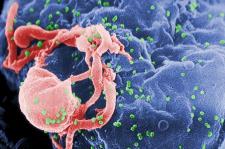Aggregated News

Researchers in China have reported editing the genes of human embryos to try to make them resistant to HIV infection. Their paper1— which used CRISPR-editing tools in non-viable embryos that were destroyed after three days — is only the second published claim of gene editing in human embryos.
In April 2015, a different China-based team announced that they had modified a gene linked to a blood disease in human embryos (which were also not viable, and so could not have resulted in a live birth). That report — a world first — fuelled global deliberations over the ethics of modifying embryos and human reproductive cells, and led to calls for a moratorium on even such proof-of-principle research.
At the time, rumours swirled that other teams had conducted similar experiments. Sources in China told Nature’s news team that a handful of papers had been submitted for publication. The latest paper, which appeared in the Journal of Assisted Reproduction and Genetics on 6 April, might be one of these. Nature’snews team has asked the paper’s corresponding...



